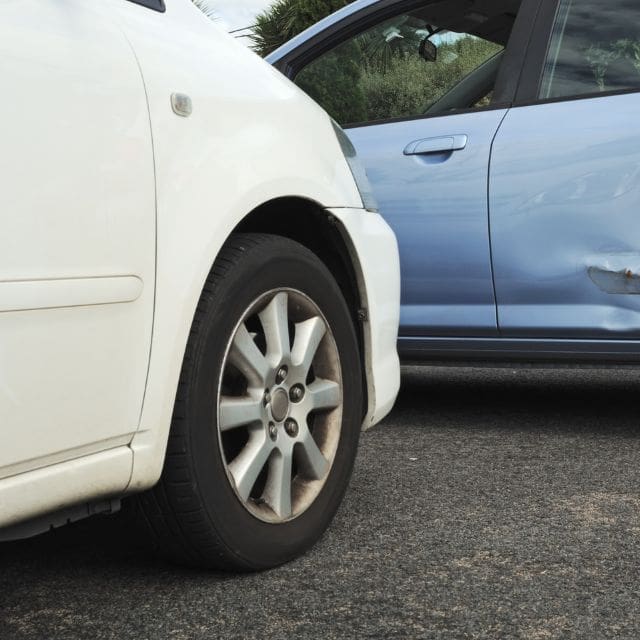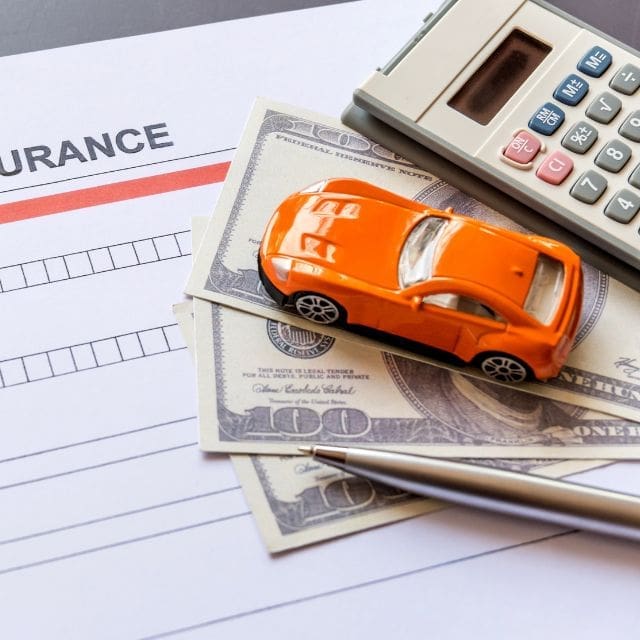You’ve likely heard about car accidents and their immediate consequences, but have you considered their long-lasting impact on your health? Car accident injuries long-term don’t always heal quickly or completely. They can lead to chronic pain, mobility issues, and even psychological trauma that persists for years. These lingering effects can drastically alter your daily life, from your ability to work to your relationships with loved ones. Understanding the potential long-term consequences of car accident injuries is essential for anyone who’s been in a collision or knows someone who has. What exactly are these lasting effects, and how can they be managed?
Physical Effects on Long-Term Health

Experiencing a car accident can lead to a wide range of physical injuries that may have lasting impacts on your health and well-being.
You might suffer from chronic pain, which can persist long after the initial injury has healed. This ongoing discomfort can affect your daily activities, sleep patterns, and overall quality of life.
Physical limitations are another common long-term consequence. You may experience reduced mobility, decreased strength, or impaired coordination, which can hinder your ability to perform routine tasks or engage in activities you once enjoyed. These limitations might require ongoing physical therapy or assistive devices to manage.
Soft tissue injuries, such as whiplash, can lead to persistent neck and back pain, headaches, and reduced range of motion. More severe injuries, like fractures or spinal cord damage, may result in permanent disabilities or chronic conditions that require lifelong management.
Additionally, you might face an increased risk of developing secondary health issues. For example, reduced mobility can lead to weight gain, cardiovascular problems, or muscle atrophy. It’s essential to work closely with healthcare professionals to develop an extensive treatment plan that addresses both the immediate and long-term physical effects of your car accident injuries.
Psychological Impact and Mental Wellbeing
While physical injuries are often visible, the psychological impact of a car accident can be equally profound and long-lasting. You may find yourself grappling with post-traumatic stress disorder (PTSD), experiencing distressing flashbacks, nightmares, and a constant state of hypervigilance. These symptoms can severely disrupt your daily life and sense of safety.
Anxiety and depression are also common outcomes, often stemming from ongoing pain, physical limitations, and drastic changes to your lifestyle. You might struggle with cognitive impairments, such as memory issues and difficulty concentrating, which can hinder your ability to function independently and perform routine tasks.
The emotional toll of a car accident can lead to social withdrawal and strained relationships, further impacting your quality of life. You may lose independence and struggle to adjust to your new circumstances.
It’s pivotal to seek professional mental health support to help you cope with the emotional trauma and psychological impacts. Therapy and counseling can provide valuable tools and strategies to manage your symptoms, process your experiences, and work toward recovery. Remember, addressing your mental well-being is as important as treating your physical injuries.
Cognitive Consequences and Brain Function
Many car accident survivors face considerable cognitive challenges that can persist long after their physical injuries have healed. These issues can range from memory problems to difficulties with concentration and problem-solving.
Even mild traumatic brain injuries can lead to ongoing struggles with decision-making, emotional regulation, and overall cognitive function. What’s more concerning is that head injuries from car accidents have been linked to an increased risk of developing dementia and Alzheimer’s disease later in life.
To address these cognitive consequences, you’ll likely need specialized therapies and rehabilitation to regain lost skills and improve your daily functioning. It’s essential to undergo ongoing monitoring and management of cognitive changes, as these long-term effects can profoundly impact your quality of life.
Daily Life and Independence Challenges

After a car accident, you’ll likely face significant challenges in your daily life and struggle to maintain your independence. Chronic pain and cognitive impairments can severely limit your ability to work and perform routine tasks, forcing you to rely on others for assistance. You may be frustrated by losing autonomy, especially if you need ongoing support from caregivers or family members.
You’ll need to make all-encompassing lifestyle adjustments to adapt to these changes. Home modifications, such as installing ramps or grab bars, can improve your safety and accessibility if you have reduced mobility. Engaging in rehabilitation programs is indispensable for regaining as much independence as possible and learning new ways to navigate daily activities.
Despite these challenges, it’s pivotal to maintain social connections and seek emotional support. Isolation can worsen the psychological impact of your injuries, so staying connected with friends and family is fundamental for your well-being. Remember, community resources and support groups are available to help you cope with the long-term effects of your car accident and regain a sense of control over your life.
Treatment Options for Lasting Effects
Addressing the lasting effects of car accident injuries requires a broad, multifaceted approach to treatment. These therapies can be pivotal in regaining your independence and quality of life.
You’ll likely need ongoing physical therapy, chiropractic care, and pain management techniques to help alleviate chronic pain and improve mobility.
For psychological and emotional trauma, you may benefit from cognitive rehabilitation, counseling, and support groups. These resources can help you process the accident and develop coping strategies for anxiety, depression, or PTSD.
If you’ve sustained severe injuries, you might require assistive devices like wheelchairs or walkers. Home modifications may also be necessary to accommodate your new physical limitations.
For traumatic brain injuries or spinal cord damage, ongoing medical monitoring and follow-up care are indispensable. Your healthcare team will work with you to manage symptoms and prevent complications.
Don’t forget to consider pursuing a personal injury claim. This can help secure financial compensation to cover your extensive medical expenses and lost wages. Remember, a thorough treatment plan tailored to your specific needs is integral to managing the long-term consequences of car accident injuries and promoting your recovery.
Financial Implications of Ongoing Care
While extensive treatment is vital for recovery, the financial burden of ongoing care for car accident injuries can be staggering. You’ll likely face mounting medical bills that can persist for years or even a lifetime, putting immense strain on your finances. Lost wages and reduced earning capacity due to disability or limited mobility can exacerbate financial hardship.
The costs of ongoing rehabilitation, assistive devices, and home modifications can quickly deplete your personal savings and insurance coverage. You may need financial assistance or even face bankruptcy. To protect your financial future, seeking fair compensation through a personal injury claim is essential.

Consider these long-term financial implications:
- Continuous medical expenses for treatments, medications, and therapies
• Costs of specialized care and assistive devices
• Potential loss of income due to inability to work or reduced work capacity
Legal Considerations for Long-Term Injuries
Long-term injuries from car accidents often require careful legal consideration to guarantee you’re sufficiently compensated for your ongoing medical needs and life changes. Establishing liability and proving fault are key steps in securing the compensation you deserve. You’ll need to thoroughly document the extent and duration of your injuries and their impact on your quality of life.
Expert medical testimony is typically necessary to demonstrate the direct link between the accident and your long-term health issues. This evidence can strengthen your case and help maximize your recovery in a personal injury claim.
Additionally, calculating future lost earnings and projected lifetime medical costs is complex and often requires input from financial and healthcare professionals.
When pursuing your claim, you’ll likely need to negotiate with insurance companies to ensure fair long-term care and support compensation. It’s imperative to approach these negotiations with comprehensive documentation and expert testimony.
The goal is to secure adequate funds to cover your ongoing medical expenses, lost wages, and any necessary lifestyle adjustments. By carefully considering these legal aspects, you’ll be better positioned to protect your rights and secure the support you need for your long-term recovery.
Car Accident Injuries Long-Term Impact: How Calandro Law Can Help
Car accident injuries can cast a long shadow over your life, affecting your physical health, mental well-being, and financial stability for years to come. As we’ve explored in this article, the consequences can be far-reaching, from chronic pain and mobility issues to psychological trauma and cognitive impairments. These lasting effects can dramatically alter your daily life, work capacity, and relationships.
Understanding and addressing these long-term impacts is crucial for your recovery and future quality of life. Working with healthcare professionals to develop comprehensive treatment plans that address both immediate and ongoing needs is essential. Additionally, seeking mental health support can provide valuable tools for coping with the emotional and psychological aftermath of your accident.
However, managing the financial burden of ongoing care can be overwhelming. This is where legal support becomes invaluable. Calandro Law specializes in helping car accident victims secure the compensation they need for long-term care, lost wages, and future medical expenses. Our experienced team understands the complexities of cases involving lasting injuries and works tirelessly to protect your rights and future.
Don’t let the long-term effects of your car accident dictate your future. Reach out to Calandro Law for a free consultation. Let us help you build a strong case that accounts for your ongoing needs and secures the resources necessary for your continued recovery and adaptation.
Contact Calandro Law today for your free consultation. Take this important step towards safeguarding your future and focusing on your recovery.



